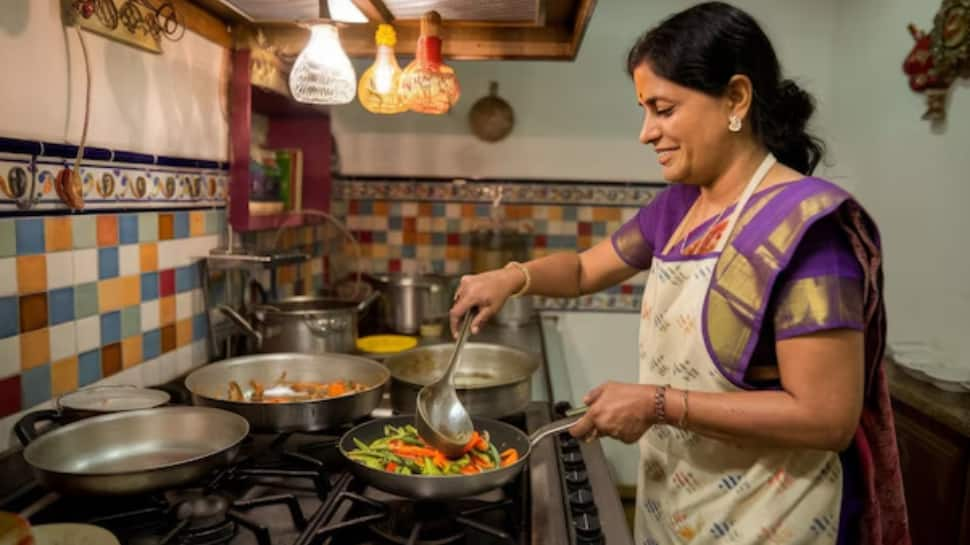We often pay attention to the freshness of the food we eat, but what about the utensils we cook in? From non-stick pans that wear down over time to stainless steel kadhais that last decades, each kitchen item has its own lifespan. And using old or damaged cookware can do more harm than you think, affecting not just taste but your long-term health.
Let’s break down when to replace each common kitchen utensil and what signs you shouldn’t ignore.
1. Non-Stick Pans and Tawas: Use With Caution
Expiry Timeframe: Replace every 2–3 years, or sooner if scratched.
Non-stick cookware, especially pans and tawas, are popular for their ease of use. But here’s the scary part: when the Teflon coating wears off or scratches, it can leach toxic chemicals (like PFOA) into your food. This can lead to health issues ranging from hormone disruption to long-term organ damage.
Signs it’s time to toss:
► Scratches or flaking coating
► Discoloration or warping
► Food starts sticking despite oiling
Pro Tip: Avoid using metal spatulas on non-stick pans, and always cook on low to medium heat.
2. Stainless Steel Cookware: Durable But Not Eternal
Expiry Timeframe: Can last up to 10-15 years with good care.
Stainless steel kadhais, saucepans, and pressure cookers are long-term kitchen heroes. They don’t release toxins and are highly resistant to rust and corrosion. However, over time, the base may warp, or you may notice pitting or discoloration from salt or acidic foods.
When to replace:
► If the base is warped and affects heating
► When food starts burning unevenly
► If rust spots or deep scratches appear
Tip: Clean with baking soda and avoid abrasive scrubs to increase life.
3. Aluminium Utensils: Affordable But Controversial
Expiry Timeframe: 5-7 years with regular use
Though still found in many Indian kitchens, aluminum utensils are now being discouraged by health experts. Excessive aluminum exposure has been linked to neurodegenerative conditions like Alzheimer’s.
Replace if:
► The surface becomes dull or pitted
► You notice a metallic taste in food
► You regularly cook acidic food (like tomato-based dishes)
Safer alternatives: Switch to anodized aluminum or stainless steel.
4. Cast Iron Cookware: Built to Last Generations
Expiry Timeframe: Decades, if seasoned and maintained well.
Cast iron tawas and pans are making a strong comeback for their health benefits. They leach a small amount of iron into food, which is actually beneficial. However, poor care (like letting them rust or using harsh soap) can shorten their life.
Replace if:
► There’s severe rusting or cracking
► The seasoning keeps wearing off after each use
► You see grey residue or metallic taste in food
Maintenance Tip: Oil and season after every wash and never air-dry.
5. Pressure Cookers: Check the Whistle and the Seal
Expiry Timeframe: 5–8 years, depending on brand and use
The humble pressure cooker is a staple in Indian kitchens. But with high heat and pressure involved, it’s critical to ensure the gasket (rubber ring) and safety valves are intact.
Time to replace:
► If the lid doesn’t seal properly
► Whistle or valve malfunctions
► Gasket is worn, cracked, or hardened
Annual Check: Always replace the gasket and safety valve once a year for safety.
6. Wooden Spoons and Chopping Boards: Hygiene Over Sentiment
Expiry Timeframe: Every 1–2 years
Wood is porous and tends to absorb moisture, oil, and bacteria over time. No matter how clean they seem, wooden utensils and chopping boards can harbor germs if not replaced regularly.
When to replace:
► Cracks or deep grooves develop
► Warping or foul smell despite washing
► Discoloration and mold spots
Better Option: Consider bamboo or food-safe plastic boards.
7. Plastic Utensils: Light, Cheap, and Problematic
Expiry Timeframe: Every 1–2 years or when damaged
Plastic spatulas and containers are often overlooked, but if they melt, scratch, or warp, they can release harmful chemicals like BPA or microplastics into your food.
Watch out for:
► Melting edges
► Cracking or staining
► If not marked BPA-free
Pro Tip: Use silicone utensils instead, they’re safer and more heat-resistant.
Declutter Your Kitchen, Safeguard Your Health
Your kitchen might be a treasure trove of nostalgia, but old and worn-out utensils can quietly sabotage your health. A scratched pan or a rusty kadhai might seem harmless, but over time, they could leach dangerous substances into your daily meals.
Make it a habit to inspect your kitchenware every 6 months. Remember: cooking with safe, reliable utensils is just as important as using fresh ingredients. Your future self and your health will thank you.
FAQs
1. Do kitchen utensils really expire?
Yes, most utensils have a usage lifespan and should be replaced when worn out.
2. How often should non-stick pans be replaced?
Every 2–3 years, or sooner if the coating is scratched.
3. Are old pressure cookers unsafe?
Yes, worn-out gaskets or damaged safety valves can pose serious risks.
4. Is it safe to cook in aluminum utensils?
Not recommended for daily use, especially with acidic foods.
5. How long do stainless steel utensils last?
With proper care, they can last up to 10–15 years.
(This article is meant for informational purposes only and must not be considered a substitute for advice provided by qualified medical professionals.)

